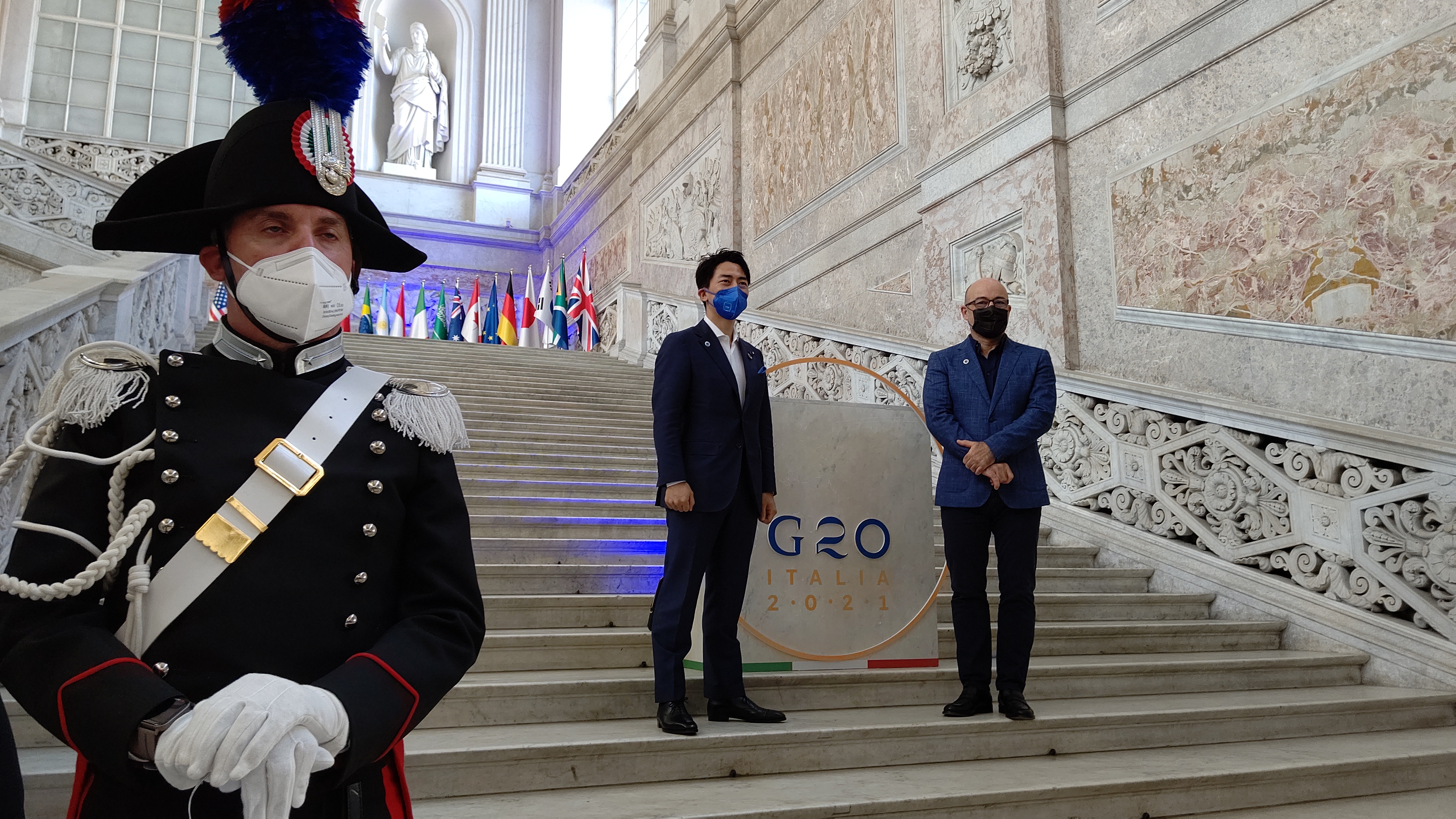Statement
Statement by KOIZUMI Shinjiro, Minister of the Environment, Japan, at G20 Climate and Energy Ministers' Meeting (July 23, 2021)

Session 1 Cities and Climate Action
1. Japan's initiatives
○Thank you Mr. President. I have two points.
○First, the role of cities in climate actions.
Climate actions need to take root locally. And we are deeply aware that the government's support is essential.
○In Japan, we have decided on a roadmap for local decarbonization in June this year. In the next five years, we will focus on promoting the latest available technologies to decarbonize Japanese cities and towns. By 2030, we will create at least 100 model decarbonization areas. Then we will push for bold climate actions throughout the nation.
2. Toward COP26
○Second, about significance of this meeting. The success of COP26 is indispensable to confront and overcome the global crises of the coronavirus pandemic and climate change. And G20 countries responsible for 80% of global CO2 emissions must lead the way towards decarbonization. We, the G20 nations, must seize the opportunities of this ministerial meeting and the Summit in November to pave the way for the success of COP26.
○Today's ministerial communiqué should express three commitments as G20 nations: one, aiming to reach net zero GHG emissions to keep 1.5℃ within reach; two, strengthening 2030 targets in line with this goal; and three, enhancing actions on adaptation and finance to implement the Paris Agreement. The communiqué should also clearly state the G20's determination to work together towards the success of COP26.
Let us work together for a fruitful G20 Climate Energy Meeting.
Let us pave the way together for the success of COP26.
Thank you, Grazie, Arigato.
Session 2. Sustainable Recovery and Clean Energy Transition
1. Redesigning the socioeconomic system
○Now we face two global crises of the coronavirus pandemic and climate change. At this important turning point, it is essential to redesign our socio-economic system to make it sustainable and resilient.
2. Japan's initiatives
○The UNFCCC and I hosted a ministerial meeting "Platform for Redesign 2020" last September to strengthen global solidarity and climate momentum. Numerous statements from countries' representatives demonstrated their political will and concrete actions implemented to tackle both the pandemic and climate change.
○ Our challenge toward decarbonization is one of key elements of redesign. Japan's 46 percent reduction and efforts towards 50 percent are ambitious targets in line with the goal of net zero by 2050. The announcement of the goal has generated a strong momentum in Japan to accelerate climate actions. In line with this target, we will give priority to renewable energy as we pursue its large-scale introduction. We now have a law to make the 2050 target a basic principle. This will ensure its policy continuity.
○These efforts will never be easy, but as Minister in charge of climate change, I will continue to do my best to actively showcase Japan's bold decarbonization initiatives and lead negotiations at the international fora.
○Grazie, and now over to my colleague, Mr. Nagasaka.

